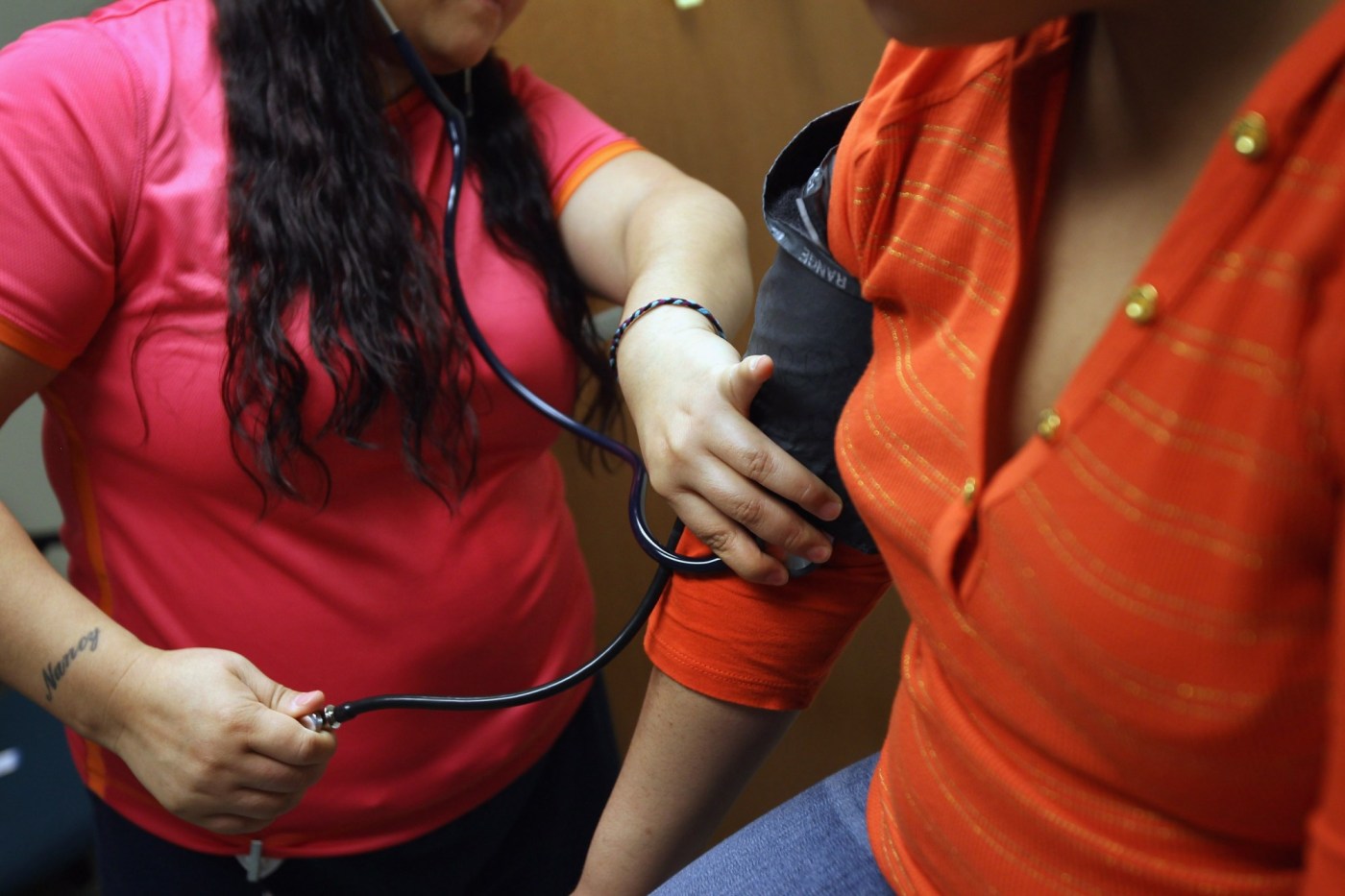Shalina Chatlani | (TNS) Stateline.org
Nearly 1 of every 5 uninsured working-age adults across the 10 states that have not expanded Medicaid under the Affordable Care Act are, according to a new analysis, stuck in a health care limbo known as a “coverage gap.” That means they earn too much money to receive Medicaid but not enough to qualify for financial help to purchase their own plan on the marketplace.
In Alabama and Mississippi, more than a quarter of uninsured working-age adults are left with no affordable pathways to health coverage, according to the analysis from the Center on Budget and Policy Priorities, a progressive think tank that researches federal and state budget policies. Overall, 1.6 million adults between the ages of 19 and 64 face the situation in the non-expansion states.
“They are all people with incomes below the federal poverty level, and yet they have no financial assistance or coverage,” said Gideon Lukens, senior fellow and director of research and data analysis with the organization’s health policy team.
The analysis also found that more than 60% of those who fall into this gap are people of color: Latino people account for 35%, Black residents account for 24%, and Asian people account for 2%.
Mississippi state Rep. Robert Johnson, a Democrat, said the lack of insurance coverage contributes to other problems — such as the closures of hospitals that have to cover the cost of treating uninsured patients — in all types of communities.
“This is not a conservative or liberal issue. This is about the people that we represent in the state of Mississippi, whether they be Black or white,” Johnson said in an interview. “This is a life-or-death issue for not just individuals, but the whole communities.”
What’s the coverage gap?
The Affordable Care Act, also known as Obamacare, was enacted in 2010, but 10 states have not expanded Medicaid, the federal-state program that provides health care for low-income people. They are Alabama, Florida, Georgia, Kansas, Mississippi, South Carolina, Tennessee, Texas, Wisconsin and Wyoming.
The Affordable Care Act allowed states to expand Medicaid to cover people up to 138% of the federal poverty line. The costs of insuring more people would be paid for primarily with federal funds and a smaller state match. People who earned more than that could receive tax credits to subsidize health insurance costs.
But in the states that didn’t expand, many people with low incomes were left without affordable options.
Jennifer Tolbert, deputy director of the Program on Medicaid and the Uninsured at the nonprofit health research organization KFF, told Stateline most people in the coverage gap have jobs but may work in industries and for employers that are much less likely to provide health insurance coverage, such as in the service industry or construction.
“They simply don’t have access to affordable health insurance coverage, and therefore fall into what we call the coverage gap,” Tolbert said.
In Alabama, for example, people are only eligible for Medicaid if they earn at or below 18% of the federal poverty line, about $4,678 a year for a three-person household. But health insurance cost subsidies would only kick in for people earning at 100% of the federal poverty line, which means those in the coverage gap may be stuck with premiums at upward of hundreds of dollars a month if they got a marketplace plan.
Considering expansion
Some analysts say that, despite misgivings about the Affordable Care Act, holdout states will need to reconsider expansion to bring in federal matching funds and help their residents.
“There is no real solution to ensuring some level of health insurance coverage for this population, absent a Medicaid expansion,” said James C. Capretta, a senior fellow at the American Enterprise Institute, a center-right public policy think tank.
“If you’re going to have a safety net insurance system in this country, which we should have, it absolutely has to be reliably there for people in this kind of income with these kinds of income levels,” Capretta said. “There needs to be some push and movement to see if there is a way forward to get the coverage gap fully closed.”
In Mississippi, where Republican Gov. Tate Reeves has said he would veto any bill on Medicaid expansion, there has still been some movement. Both chambers of the Mississippi legislature earlier this year approved versions of bipartisan legislation that would have expanded Medicaid with work requirements. But the measure failed after legislators were unable to settle on a final version.
“My argument to my Republicans has been, ‘The ACA is with us. With 40 states now enacting it, it’s going to be with us,’” White told Stateline. “‘And if you can’t get there for the compassion and the health care coverage for these low-income working Mississippians, get yourself there because of the savings and the cost benefits it is for our health care industry and for our state economy as a whole.’”
White said the Republican caucus has been seeing a change in temperature, with more support for expansion. He added that for the first time, the Mississippi business community supports a pathway to Medicaid coverage, which could help get a veto-proof bill through the legislature.
“We have finally seen the thawing of the ice here,” White said. “Now, where that leads to the next session in the coming years, I don’t know. But I’m encouraged.”
Stateline is part of States Newsroom, a national nonprofit news organization focused on state policy.
©2024 States Newsroom. Visit at stateline.org. Distributed by Tribune Content Agency, LLC.












